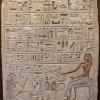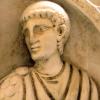Leaderboard
Popular Content
Showing content with the highest reputation on 2014-05-08 in all areas
-
They don't want that here because moderating ten forums in ten different languages is too complicated, while we all can make an effort and speak english.3 points
-
Yep, I have some thoughts on this: Fix things by balancing them - not by adding arbitrary non-implemented people dependent rules you will never be able to check if sticked to. The main reason for this is: - If a game is balanced you don't need any of those rules. - If you add PPL dependent rules you need a vast amount of man power to check if sticked to (and usually such things lead to different points of views, conflict, stress and anger and that's bad for the PPL) Better do it the "healthy" way (though I'm not exactly sure what "healthy" is but I guess you get the point ^^). I hope that was not to forthright...2 points
-
IMO victory/defeat conditions should be simple to explain (in the match type description). And they should be clear for all players in all stages of the game. (In general mainly a loose condition is needed and a player wins if no opponent is left. There are some exceptions though e.g. wonders. Changeable/fixed teams may need some different behavior.) The actual (loose when number of units/buildings is zero, win if all opponents lost - for changeable teams it may be if all other players lost, not sure) is the clearest but has its flaws in lategame (the hide and seek annoyance), Mythos_Ruler's tech would fix this mainly (in some cases the dominant player might need to build e.g. a dock to reach a leftover ship though). (Adding a "scout" order that tells every selected units individually(!) to randomly (or better "go to the location with the highest lastTimeVisualBeforeXSecs / distanceToThisUnit ratio that can be reached by this unit and then continue") walk across the map - and if set to "aggressive" stance attack and chase any unit coming into visual range would help as well) This would be my favorite default victory/defeat condition (and default match type conquest). Another match type could be battle: - Players get a fixed starting force (without any buildings or builders - or units simply can't build). This can be chosen by the map designer or (if not) dependent on his civ defined in an XML file (and then placed at the first turn). - A player gets visual on all players that has less then 1/10th units compared to him left (this is only obvious during the game if a player table is in displaying the number of units for all players - and e.g. turn red if visual to any other player). There may be other game types but what I mainly wanted to say is: - Every game type might have different needs in victory/defeat conditions. - Game types should be independent of the map, so all functionality of all (default) match types (that work with "any" map) should be defined outside the map (though they may be tweaked inside the map (to some degree) like the starting forces). That means it would be most pleasant for the map designer to have a "start location" placeholder entity that gets replaced appropriate with the starting entities dependent on the match type at the start of the game (this may include Gaia entities like the "starting resources" for conquest). (This entity could also be the default camera position if not defined otherwise) For more variety victory/defeat conditions could be set inside the map by scripting (AFAIK already possible) but only work if no "default" match type is chosen (for simplicity it might be best to just set the match type fixed to special for such maps - and a descriptive text to (try to) explain the match type). Such maps could get an own map category e.g. "special" to make clear that thy have there own match type and/or victory/defeat condition definition as well as maybe non-default starting entities. I'm not thrilled by the thought of unclear victory/defeat conditions like "is dominant" or something similar (which matches my suggestion for the match type battle though a "leaderboard" might make that a bit more obvious). (Another - not that well thought through - game feature connected to this would be an "intelligence gathering" tech so e.g. the visual range of all buildings (and maybe units) are increased each time the upgrade is researched and it can be researched an infinite amount of times... for a price. Maybe this tech could be added to the market or the civic centre. If "line of sight" checks are/get implemented though this may be a really bad idea due to performance)2 points
-
Hey everyone, I have a quick question. I was just looking at the latest SVN version, and I saw that the game interface now supports other alphabets... does this mean that it's now possible to write the unit/building names, for the Athenians let's say, in Ancient Greek in the Greek script, rather than what we have now (a transliteration into the Latin script)? If so, I think that would add another level of realism to the game. This could get very interesting and somewhat exotic, especially if we made use of some of the lesser-known scripts, ie: Old Persian Cuneiform (which is Unicode Supported!) for Persian or Phoenician/Punic for the Carthaginian names (also Unicode Supported!). Thanks, Atenmeses1 point
-
Yeah, + if people write in English more people have a chance to understand. And thus benefit, or help out for that matter. It might be a bit harder for some people, but one can also see it as a chance to learn more English1 point
-
I agree. Historically, that is the main focus of wars between Empires and ancients - territories, and the rare/ valuable resources that those territories contain. Since 0 AD is geared on realism, we should take that into account.1 point
-
Actually it seems to more or less imply that the flautist is Theban rather than from Sparta. On the other note, it would be perhaps a bit better for most horn players to cause a morale penalty to the enemy. Basic units would be affected most, while champions would be least affected.1 point
-
1 point
-
Indeed, it's a good TV series but it scores average in historical accuracy. http://www.imdb.com/title/tt2306299/trivia?ref_=tt_trv_trv http://www.academieduello.com/news-blog/facts-foibles-history-channels-series-vikings/1 point
-
i think the best option for morale boosting units would be heroes: not only would their very presence inspire those around them to fighting harder ("Look! We ride with Caesar himself! We can't possibly lose now!") but conceivably they could have special abilities along the lines of ones presented in Empire Earth and Age of Mythology. namely, depending on what they did historically (or if they are historically documented as having done so, or if there are legends about it) heroes could have battlecries which either lower enemy morale or boost allied morale in an area of effect. other powers/special attacks could be included as well (to take a page out of AOM's book, an archer hero known for his skills with a bow could have an "accurate shot" special attack where, every once in a while, he fires an arrow with 100% accuracy and for greater damage), but that's kinda deserving of its own thread, and realistically i can only see battlecries or similar things being useful for morale (for example, instead of a battlecry, a hero could blow a horn that they have, which otherwise has the exact same effect)1 point
-
Atenmeses is back. Interesting point. We could just have the original transcription as tooltip? Would it be even possible to include Elvish? There are free fonts for that at least.1 point
-
1 point
-
I HATE Blender... Forgot to save, and this stupid program can't import animations correctly. Everything is screwd...1 point
-
There's also a plan to reveal the position of one unit at a price, so if only a few units are hidden, you can use this option a few times.1 point
-
I can see a Strategic Campaign system like that. This is my idea (it's sort of like the Age of Empires Gold Campaigns): Several Campaigns, each in a different Area and different time period. You have to beat each "Campaign" to proceed to the next one. 1. Greco-Persian Wars (480 BC). Takes place in Greece, Lower Thrace, and West Anatolia. Factions are Hellenes, Thebes, Athens, Sparta, Persia 2. Punic Wars (270 BC): Takes place in Lower Italy, Sicily, Tunisia, and Lower Corsica/Sardinia Factions are Hellenes, Carthaginians, and Romans 3. Macedonian wars (140 BC): Takes place in Macedonia, Illyria, Moesia Factions are Hellenes, Macedonians, Celts, and Romans 4. Caesar's Gallic Conquest (50 BC): Takes Place in Gaul. Factions are Britons, Celts, Gauls, maybe Early Germanics, maybe Iberians, and Marian Romans 5. Dacian Wars (105): Takes place in Moesia, Upper Thrace, and Dacia. Factions are Imperial Romans, Early Germanics, Sarmatians, and Dacians 6. Marcomannic Wars (160): Takes Place in Pannonia and Noricum, and Western Dacia as well as lower Germania. Factions are Imperial Romans, Early Germanics, and Sarmatians. 5. Rise of the Sassanids (220): Takes Place in Mesopotamia, Armenia, East Syria/Anatolia, Babylonia, and maybe as far as Persia. Factions are Imperial Romans, Sarmatians, Parthians, and Sassanid Persians. 7. Gothic Wars (370 AD): Takes place in Macedonia, Thrace, and Moesia. Factions are Goths, Sarmatians, and Late Romans (East if there will be both halves) 8. Conquest of Britain (410 AD): Takes place in Britain. Factions are Picts, Romano-British, and Saxons 9. Invasion of Gaul (450 AD): Takes place in Gaul. Factions are Goths (2 of them), Late Romans (West), Huns, Sarmatians, Franks, Burgundians, Alemanni. Teams on this one (Romans Sarmatians and Goths vs. Huns, Goths, and Burgundians. Franks and Alemanni Neutral) 10. Roman Reconquest (560): Takes place in North Africa and Italy. Factions are East Romans, Goths, Vandals, and Lombards. Alternatively, maybe this overall timeline campaign could be like a Tutorial, and then have campaigns focusing on each individual era mentioned in the Tutorial?1 point








